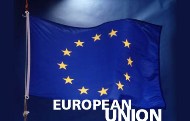EU overrides Lithuania to re-start talks on Russia deal
 Brussels - European Union foreign ministers sidelined Lithuanian objections Monday and decided to re-start talks on a strategic treaty with Russia which it froze after Russia's August war with Georgia.
Brussels - European Union foreign ministers sidelined Lithuanian objections Monday and decided to re-start talks on a strategic treaty with Russia which it froze after Russia's August war with Georgia.
"It was a very solid discussion, all EU member states except one are in line to take up the (EU-Russia) partnership talks again," said French Foreign Minister Bernard Kouchner, who chaired the talks as holder of the EU's rotating presidency.
At the close of the meeting, the French EU presidency published a statement stressing that the re-start of negotiations with Russia "in no way legitimizes the status quo in Georgia or the Russian actions which went against our principles."
The EU "continues to support the independence, sovereignty and territorial integrity of Georgia," the statement, which diplomats said was supported by all EU member states except Lithuania, said.
And Russia "must continue to comply with its engagements and play a constructive role in international (peace) talks in Geneva," pull its troops back to pre-war lines and allow international observers into Georgia's breakaway territories, the statement said.
Georgia's Foreign Minister Eka Tkeshelashvili, speaking on the margins of the meeting, gave a guarded reaction to the move, saying that it was "very hard to assess" if it had been a wise decision and that much would depend on the EU's will to keep pressure on Russia.
But she had harsh words for French President Nicolas Sarkozy, who on Friday insisted that Russia had already completely pulled its troops out of her country.
"If anybody says that (the pledge to pull out) is fulfilled, you have to be blind," she said, adding that she was "very much surprised" by a statement from Kouchner to the same effect.
And Lithuania reacted with outrage to the move, which comes just days before Russian President Dmitry Medvedev attends a summit with top EU officials in France on Friday.
Lithuania's Deputy Foreign Minister Zygimantas Pavilionis told Deutsche Presse-Agentur dpa that the French, who championed the move to re-open talks, had made a "serious historic mistake."
"We are questioning the timing and we're questioning this U-turn of our (EU) positions. ... Is it the right signal to send to Kiev, to Moldova, to Belarus, even to the Baltic states today, that by military force you can change borders?" he asked dpa.
EU leaders on September 1 froze talks in protest at Russia's occupation of Georgia, demanding that it pull its troops back to pre- conflict lines. Russia has since made a partial but incomplete withdrawal.
But ahead of Monday's meeting, a growing number of member states said the bloc should return to the negotiating table.
"We can support resuming negotiations ... because we believe that the issues that will be covered are in the EU's interests as well as Russia's," British Foreign Minister David Miliband and his Swedish counterpart Carl Bildt - among the most vocal critics of Russia's actions - said in a joint statement on Monday morning.
Usually, EU foreign-policy decisions are taken by unanimity. However, in recent weeks officials have stressed that the EU leaders' decision on September 1 was to postpone talks, not formally halt them - leaving the EU's presidency and executive, the European Commission, the legal right to re-start talks.
And Monday's decision, confirmed by both presidency and commission top officials, was taken without Lithuanian consent.
"We are afraid this is the way to legitimize the occupation of the country and we are afraid of the powerful horizontal effects of this message to all neighbours and to Russia itself," Pavilionis said.
His Estonian counterpart, Urmas Paet, also raised concern at the move, saying "legally it's not a precedent, but politically I see here some question marks."
But German Foreign Minister Frank-Walter Steinmeier hit back at the newcomers, pointing out that the EU has long been deadlocked over starting talks with Russia on the new agreement because of rows between Moscow and some Central and Eastern European members.
"At some point you have to decide whether we look at this (agreement) as a reward for Russia's behaviour or an agreement which is also in Europe's interest," he said.
The new deal between the EU and Russia is intended to give a legal basis to the two sides' relationship on matters ranging from culture and trade to energy and education. It is meant to replace a treaty signed with the regime of then-president Boris Yeltsin in 1997. (dpa)